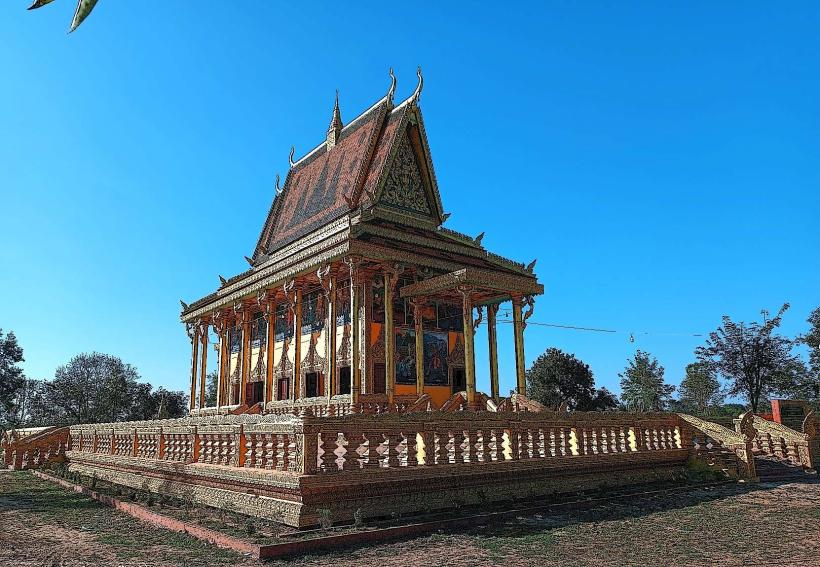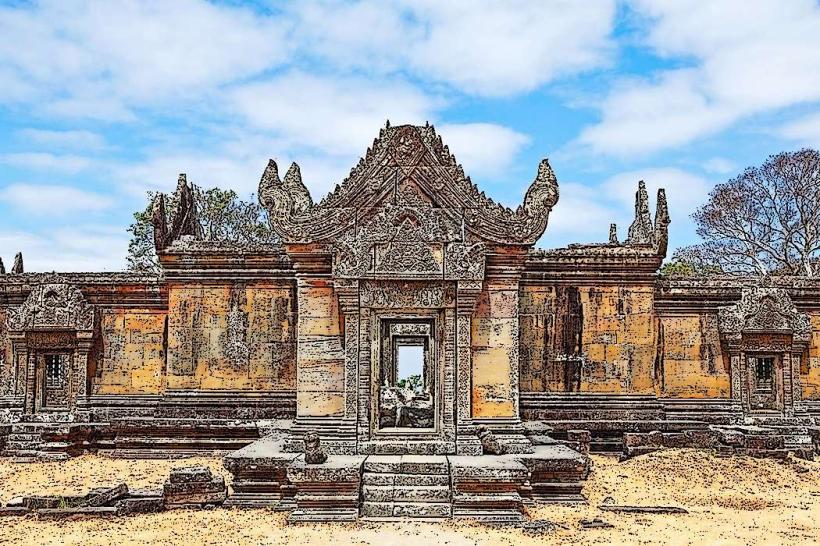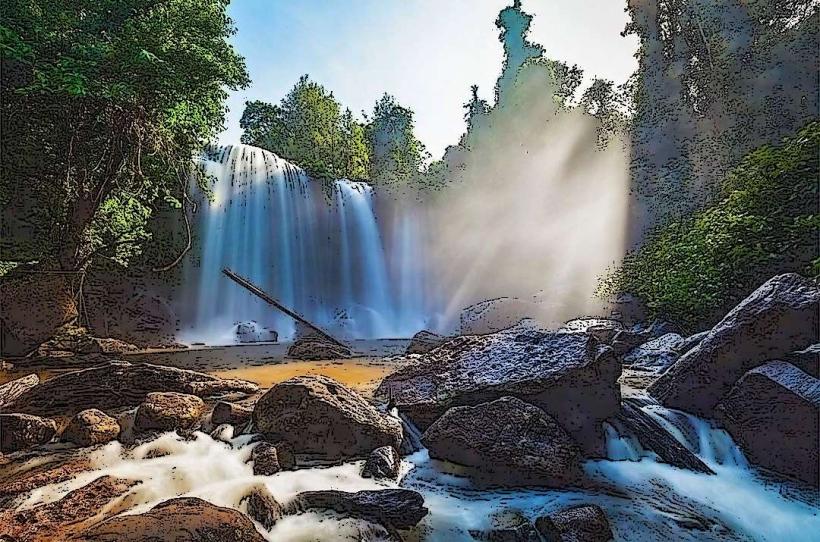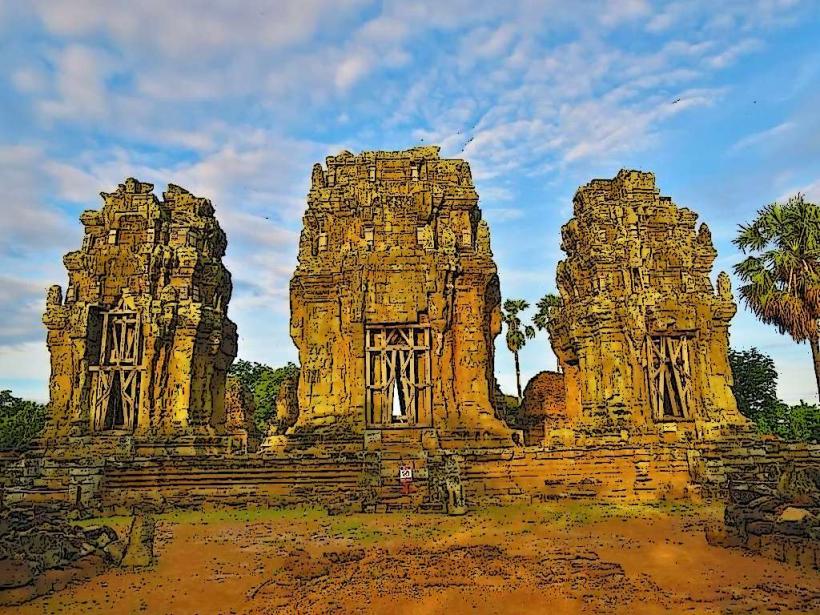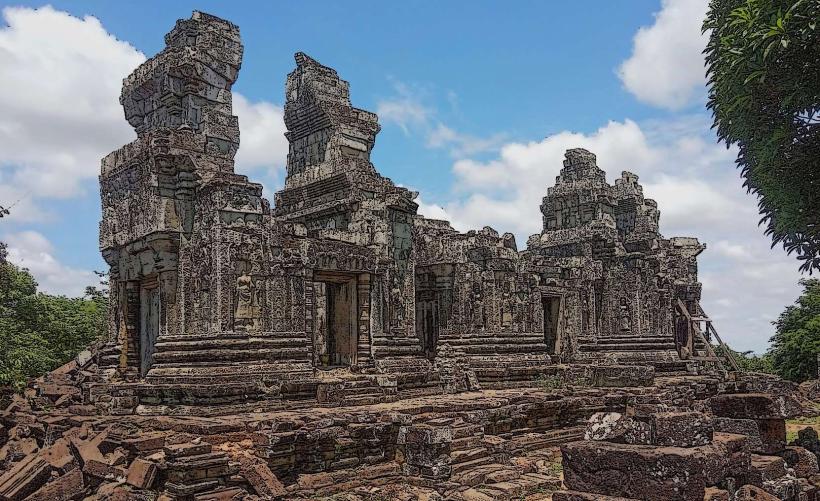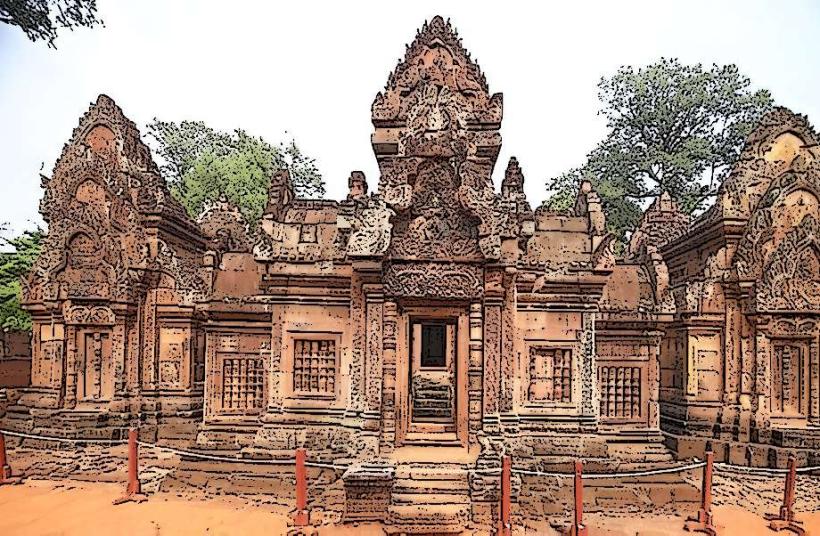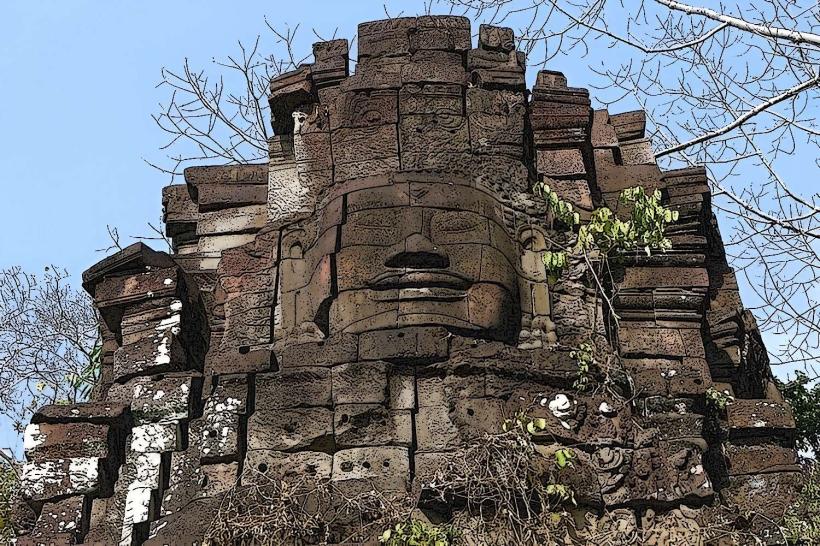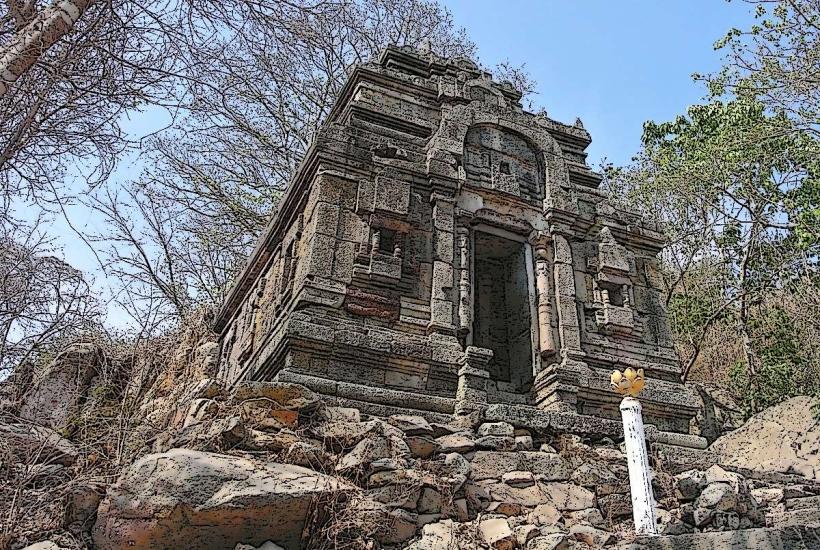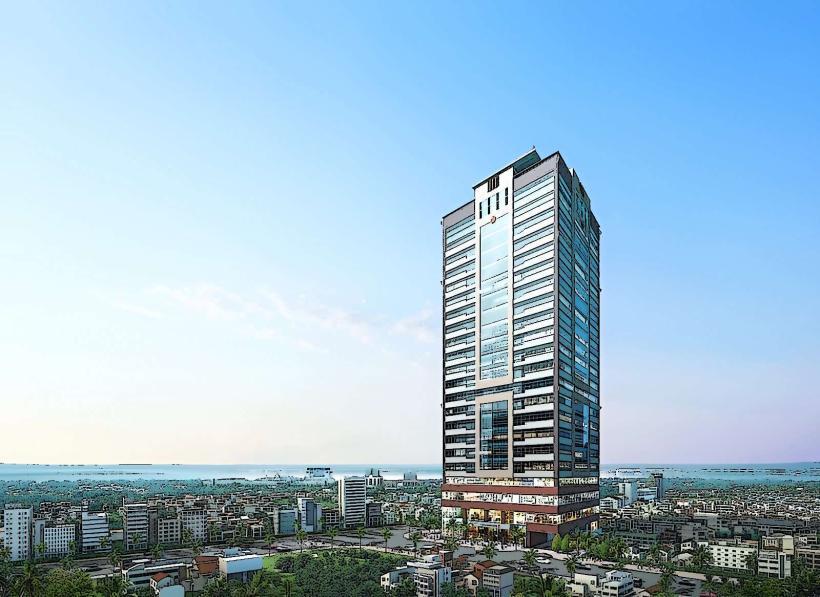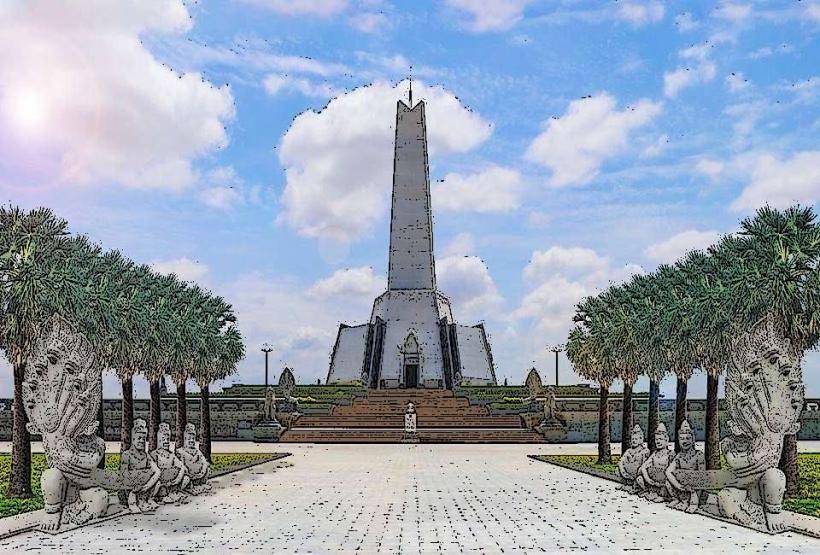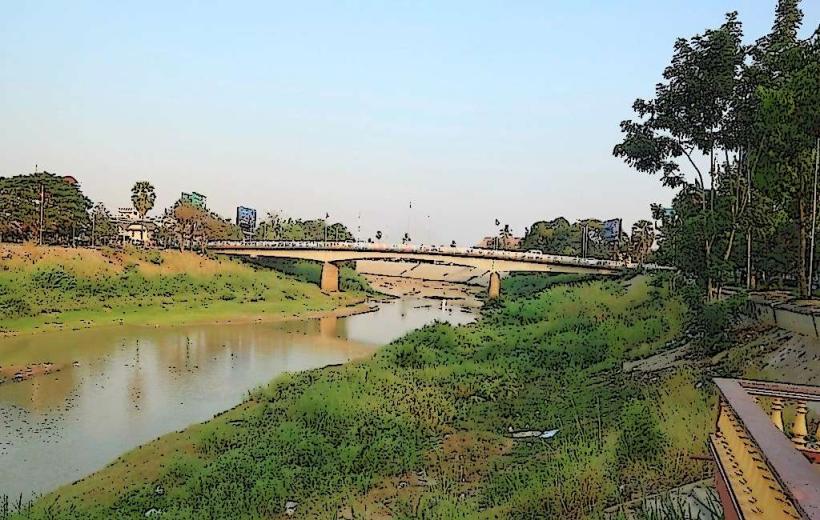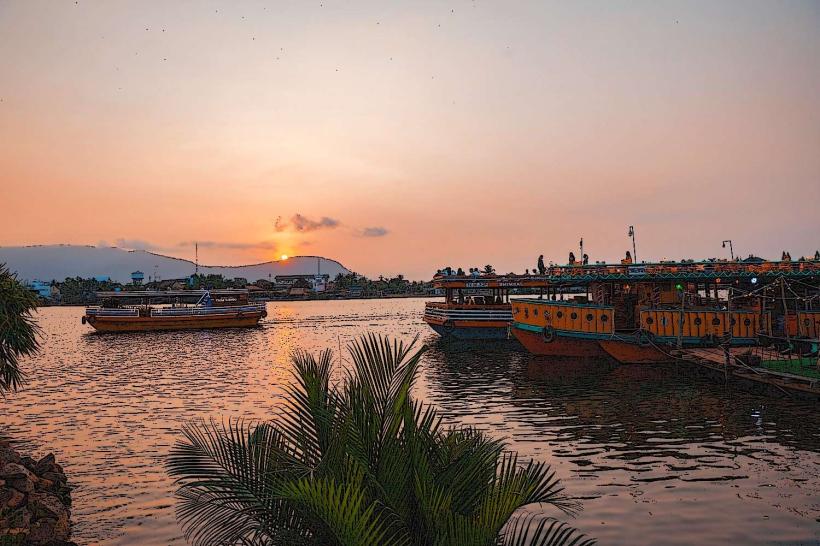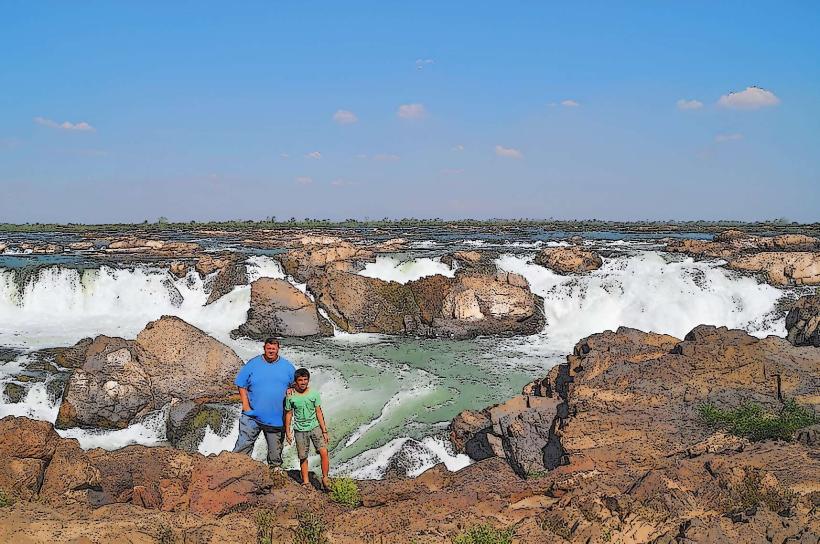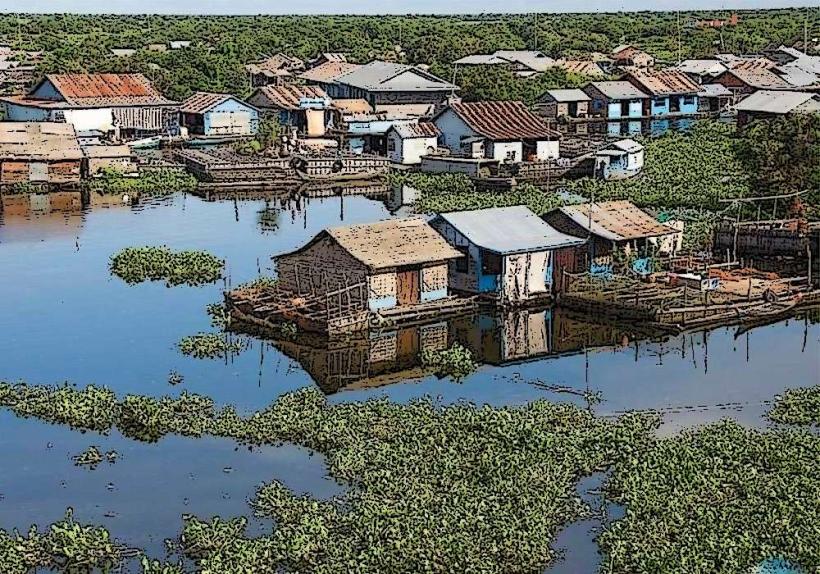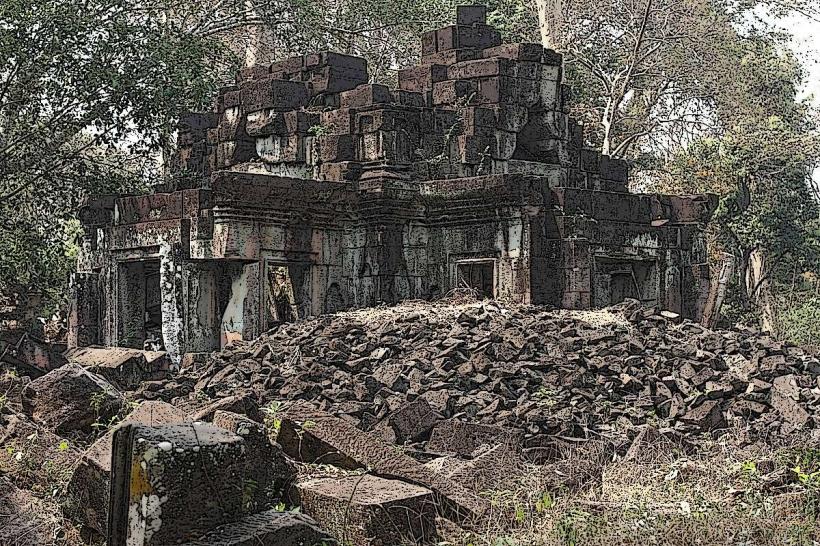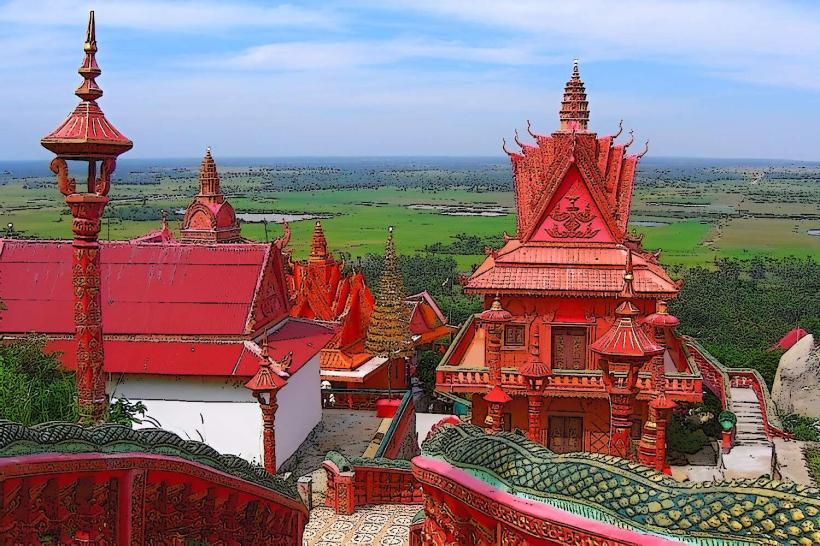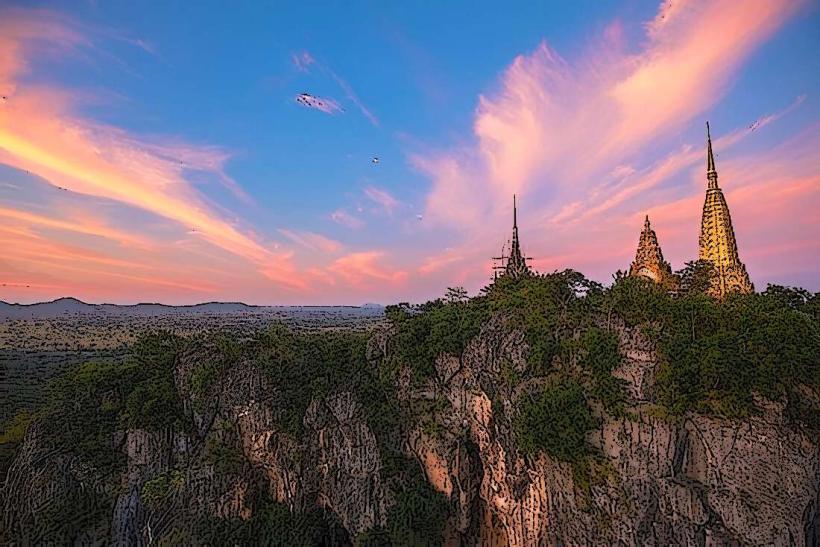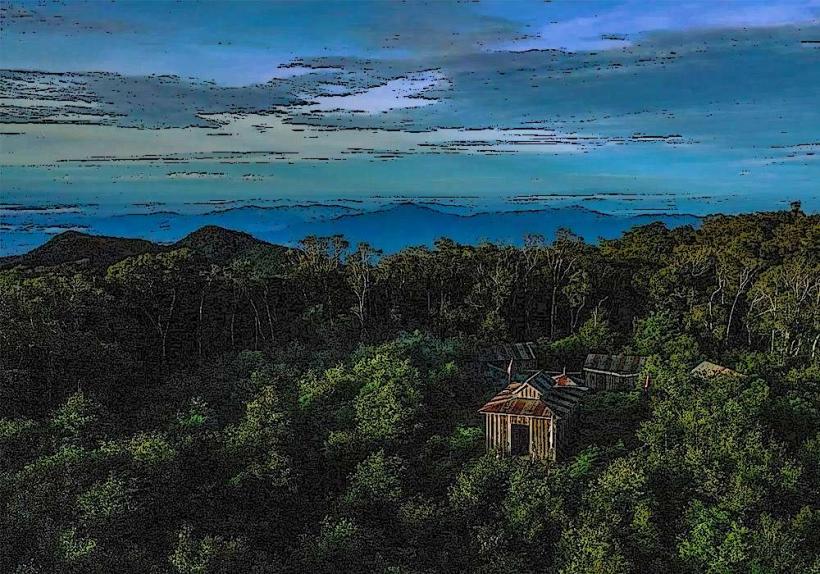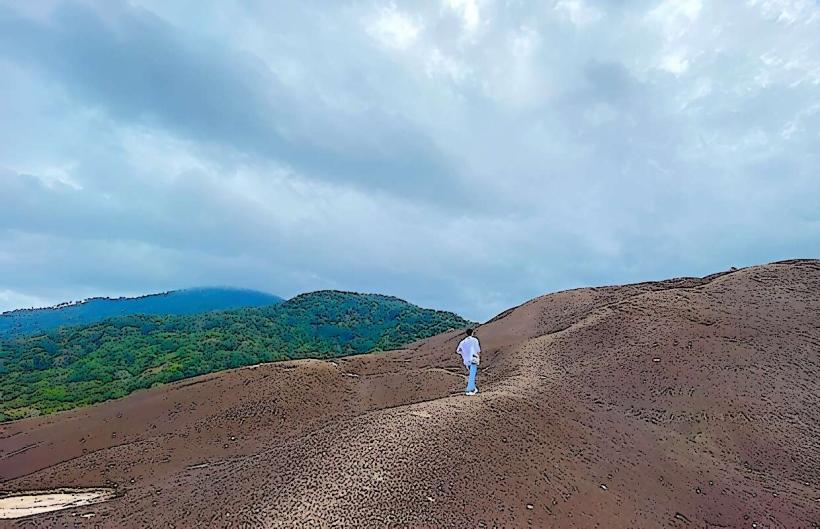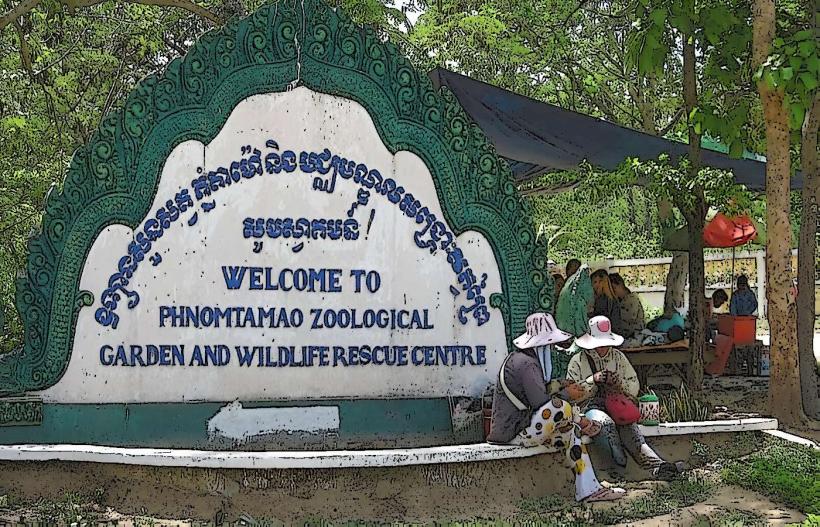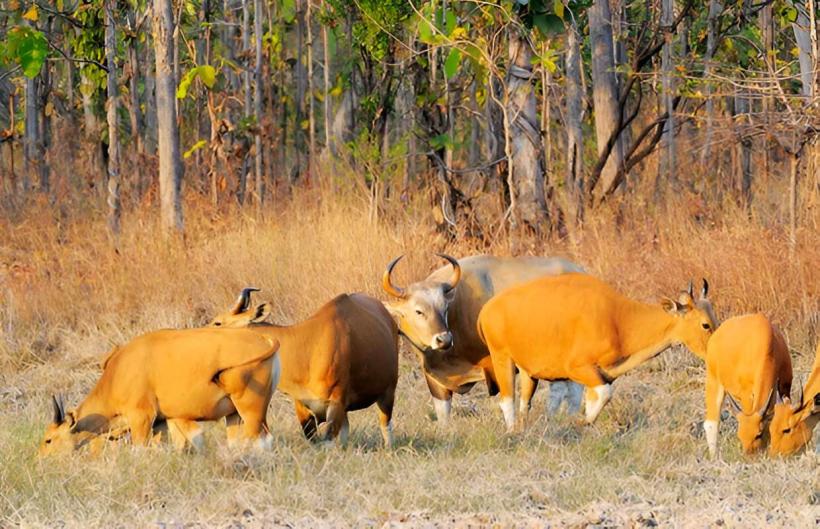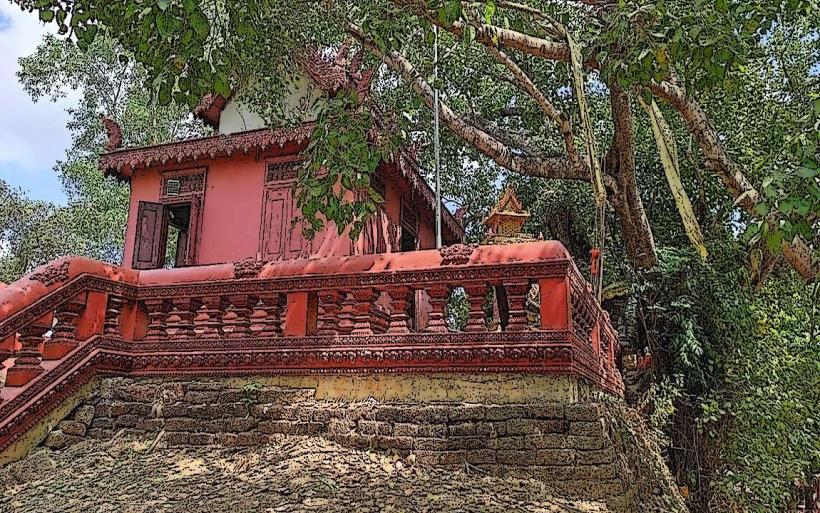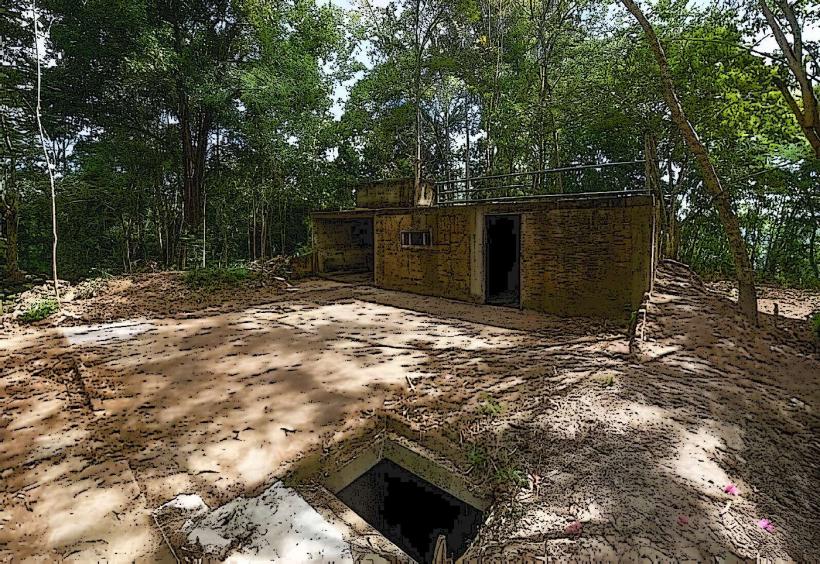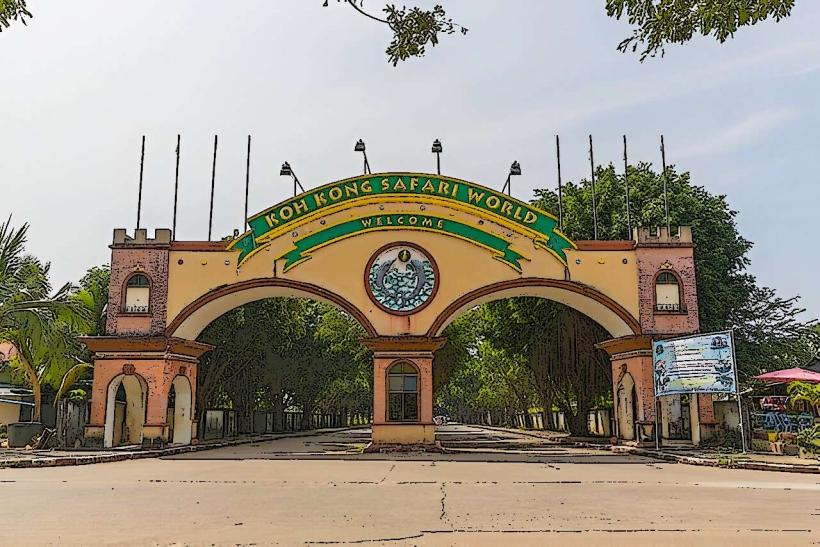Information
Landmark: Phnom BayangCity: Cambodia Province
Country: Cambodia
Continent: Asia
Phnom Bayang, Cambodia Province, Cambodia, Asia
Phnom Bayang – An Ancient Hilltop Temple in Cambodia
Phnom Bayang is an ancient Khmer temple complex located atop Bayang Mountain in Takeo Province, southern Cambodia. This temple, believed to date back to the 7th or 8th century, is one of the oldest surviving pre-Angkorian structures in the country. It is known for its remote location, historical significance, and stunning views from the mountain’s summit.
Historical and Cultural Significance
Phnom Bayang is thought to have been built during the Chenla Kingdom (6th–9th centuries CE), which preceded the Khmer Empire. The temple was dedicated to Hindu deities, particularly Shiva, and reflects the architectural and religious influences of early Khmer civilization.
Over time, as Cambodia transitioned to Theravāda Buddhism, Phnom Bayang became a place of Buddhist worship. Today, it remains an important site for local devotees and a lesser-known but historically valuable attraction for visitors interested in Khmer history.
Temple Architecture and Features
1. Hilltop Location and Stairs
- The temple sits on the summit of Phnom Bayang, requiring visitors to climb a long series of stone steps through dense forest.
- The ascent is challenging but rewarding, with beautiful jungle scenery and occasional wildlife sightings along the way.
2. Main Temple Structure
- The central temple complex consists of brick sanctuaries built in the pre-Angkorian style, featuring intricate carvings and stone lintels with Hindu motifs.
- Some structures have deteriorated over time, but restoration efforts have been made to preserve the ruins.
3. Shiva Lingam and Yoni
- Phnom Bayang was originally a Hindu temple, and its main shrine contains a Shiva lingam (a symbolic representation of Lord Shiva) placed on a yoni (a representation of the goddess Shakti).
- These sacred symbols indicate that the site was used for Hindu rituals before the spread of Buddhism in Cambodia.
4. Buddhist Influence
- While Phnom Bayang was built as a Hindu temple, it is now used as a Buddhist pilgrimage site.
- Modern Buddhist structures, including a large stupa and Buddha statues, have been added in recent years.
5. Stunning Panoramic Views
- The summit of Phnom Bayang offers breathtaking views of the Takeo Province countryside, with lush forests, distant mountains, and rice fields stretching to the horizon.
- The sunrise and sunset views from the temple are particularly spectacular.
What to Do at Phnom Bayang
1. Trek to the Summit
- The hike up Phnom Bayang Mountain is a challenging yet rewarding experience.
- The trail passes through thick jungle, with chances to see wildlife, birds, and local flora.
2. Explore the Ancient Temple Ruins
- Visitors can explore the pre-Angkorian temple structures, carvings, and religious relics that have survived for over 1,200 years.
- The temple is a great place for history enthusiasts and photographers looking to capture Cambodia’s ancient past.
3. Meditate and Experience Spirituality
- The peaceful environment of the temple makes it an ideal place for meditation and reflection.
- Many Buddhist monks visit the site for prayer, and visitors can join them for a spiritual experience.
4. Enjoy the Natural Scenery
- The trek to Phnom Bayang is surrounded by natural beauty, making it an ideal place for nature lovers and adventure seekers.
- The view from the top is one of the best in Takeo Province, especially during the cooler months.
How to Visit Phnom Bayang
Location
- Phnom Bayang is located in Takeo Province, approximately 100 km south of Phnom Penh.
- It is near the Vietnamese border, making it a remote but rewarding destination.
How to Get There
- From Phnom Penh:
- By car or motorbike – The journey takes about 2.5 to 3 hours via National Road 2.
- By bus or shared taxi – Public transport options are available to Takeo town, but a private vehicle or hired tuk-tuk is needed to reach the temple site.
- From Takeo City:
- The temple is about 50 km from Takeo town, requiring a 1- to 1.5-hour drive.
- The road leading to the base of the mountain is rugged, so a motorbike or 4WD vehicle is recommended.
Best Time to Visit
- November to February – The cooler, dry season is the best time for hiking and exploring.
- Early morning or late afternoon – Avoid the midday heat, as the climb can be exhausting in high temperatures.
Nearby Attractions
1. Phnom Da Temple
- A 6th-century Hindu temple located in Angkor Borei, another important pre-Angkorian site in Takeo Province.
- Features carvings and architectural elements similar to those at Phnom Bayang.
2. Angkor Borei Museum
- A small but informative museum showcasing artifacts from Cambodia’s early history.
- Displays stone carvings, pottery, and historical texts from the Funan and Chenla periods.
3. Tonle Bati and Ta Prohm Temple
- Located closer to Phnom Penh, Tonle Bati is a scenic lake area with a 12th-century temple built during the reign of Jayavarman VII.
- A great stop for those traveling to or from Phnom Bayang.
Conclusion
Phnom Bayang is a hidden historical gem that offers visitors a unique combination of ancient Khmer history, religious significance, and breathtaking scenery. As one of the oldest temples in Cambodia, it provides a fascinating glimpse into the pre-Angkorian era, while its hilltop location makes it a rewarding destination for hikers, spiritual seekers, and history enthusiasts alike.

